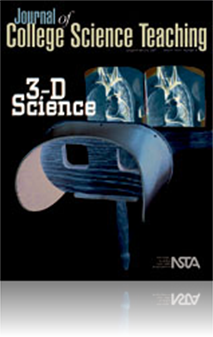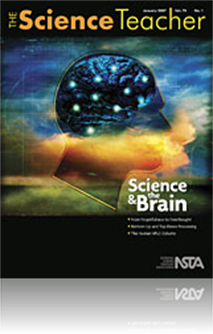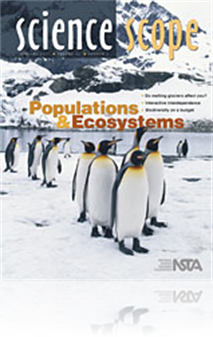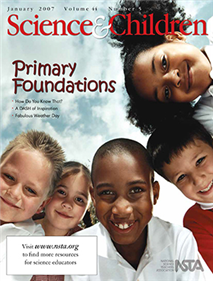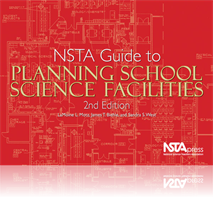All Resources
Journal Article
There is little doubt that well performed lecture demonstrations play an important role in science teaching (Straits and Wilke 2006): for many students, exciting demonstrations are what keep them interested and motivated. The demonstrations also help...
Journal Article
In this month’s Ask the Experts column, the following questions are addressed: I’ve heard that the two sides of my brain are specialized for different tasks (language vs. reasoning, etc.). If I listen to a science lecture on my iPod using only on...
Journal Article
Scope on the Skies: And then there were eight
This past summer the International Astronomical Union (IAU) approved new definitions for objects in our solar system that orbit the Sun. The definitions now allow for only eight planets, while objects smaller than planets will be known as dwarf plane...
Journal Article
Science Sampler: Word wall connections
A word wall has many uses in the middle school science classroom. It is ideal for reinforcing vocabulary and connections between concepts. In this article, the author describes an interactive way to use the word wall to create food webs. In addition,...
Journal Article
Coaching to Build Support for Inquiry-Based Teaching
Coaching, as a means to support inquiry-based teaching, starts by changing the culture from within (school, teacher, and student) rather than from external mandates. Recognizing that teacher empowerment is the first step toward increasing student ach...
Journal Article
From <em> Frustrating </em> Forgetfulness to <em> Fabulous </em> Forethought
Teens exhibit many types of behaviors—of both inattention and intense focus. From an adult’s perspective, one cannot help but wonder why this happens. Part of the answer lies in the neural restructuring of the adolescent brain. This article exami...
Journal Article
They’re M-e-e-elting! An Investigation of Glacial Retreat in Antarctica
Why has glacial melting occurred? What happens when that much freshwater enters the ocean? Will this melting continue? These questions inspired the authors to design a directed inquiry in which middle school students simulate glacial retreat in Antar...
Journal Article
The purpose of many animal studies at early grades is to build observation skills, develop a knowledge base, and practice age-appropriate science skills like comparing, describing, and drawing. While these are important learning experiences, the Nati...
Journal Article
Career of the Month: An interview with Clinical Neuropsychologist Deborah Attix
Neuroscience is a field dedicated to learning about the brain and nervous system, which can help us understand, prevent, and treat diseases and disorders such as Alzheimer’s, depression, and addiction. The vast scope of questions neuroscience is tr...
Journal Article
The Case Study: Intimate Debate Technique: Medicinal Use of Marijuana
This article describes the technique called intimate debate. To cooperative learning specialists, the technique is known as structured debate or constructive debate. It is a powerful method for dealing with case topics that involve controversy, such ...
Journal Article
Point of View: Questions From the Edge: Using Informal Surveys to Build Rapport With Students
“Astronomy helps us answer the ultimate question of human existence,” and “Astronomy helps us understand the meaning of our own existence.” These thoughts caught the attention of one professor who wondered what students thought about the mean...
Journal Article
Science Sampler: Using graphic organizers as formative assessment
With the move in the last decade toward a standards-based science curriculum, assessment has become an important part of science teaching and learning. National policies such as the No Child Left Behind Act place additional emphasis on the importance...
Journal Article
Editor’s Corner: Brainy Science
Despite being a subject of intense interest and scrutiny for all of human history, many aspects of human brain function are still rather poorly understood. However, this is about to change rapidly, as modern imaging techniques create a revolution in ...
Book Chapter
Advocacy and the Planning Process
Science educators believe that students construct their knowledge of the natural world best in safe, secure, and stimulating learning environments. In order to achieve these goals, teachers, researchers, and planners must become advocates for the sch...
Book Chapter
Current Trends and Future Directions in Science Education: Breaking Down the Walls
The simplest educational concept—and perhaps the most significant—to consider in designing tomorrow’s science programs is inquiry. In keeping with the Standards’ strong emphasis on inquiry-based programs, students increasingly will be explori...



